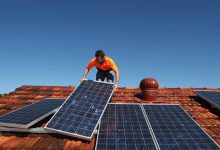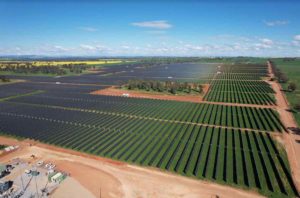The global response to climate change is becoming increasingly fractured, and governments must take a much more hands-on role in managing the energy transition, according to one of the Morrison government’s handpicked business leaders tasked with overseeing Australia’s economic response to Covid-19.
Speaking to a forum organised by the Australian National University’s Crawford School, oil industry executive and member of the Morrison government’s National Covid-19 Coordination Commission, gave a curious reflection on the state of global governance, saying that government responses to the Covid-19 pandemic, as well as climate change, have become more than more focused on the national level.
Liveris suggested that the world was moving away from cooperation between countries on major global issues, including climate change, and suggested that the Paris Agreement would not drive action to reduce emissions due to “economic nationalism”.
“Many countries, including Australia, if you look at values-based activities around the world, the various groups that are forming are truly splintering into tribal behaviours. So as much as I want the Paris Accords to be the template, they won’t be. Economic nationalism has arrived,” Liveris said.
Liveris, who has previously served as the CEO of the Dow Chemical company, and who currently sits on the board of global oil giant Saudi Aramco, said governments, including Australia, should impose meaningful taxation on fossil fuels and direct the proceeds towards the development of new clean energy technologies.
Liveris added that he thought there was a role for a “big government” response in the 21st geopolitical environment, including in the policy response to climate change.
“Australia has lapsed into this notion of exporting oil and gas, taking the royalties and using it to fund the economy. Well, how about we use those funds to fund the transition, rather than to fund other things. If we want zero carbon, export all the gas, let other people burn it,” Liveris said.
“But let’s use the money that we get from that to invest in R&D pathways to get affordable batteries, affordable hydrogen, and actually safe technologies that we can use for energy efficiency.”
The recommendations of the National Covid-19 Coordination Commission, which Liveris is a member of, has attracted criticism for a perceived bias towards the fossil fuel industry, and for ignoring the positive opportunities being presented by the clean energy sector.
On Thursday, a group of environmental organisations claimed that the NCCC chair Nev Power had misled a senate committee by falsely claiming the NCCC had consulted with the groups.
Environmental groups, as well as the clean energy sector, have called on economic stimulus measures to include investments in clean energy, as it would provide an effective means of helping the Australian economy recover, as well as contributing to the transition needed to help limit the impacts of climate change.
CEO of the Investor Group on Climate Change, Emma Herd, told the ANU forum that there had been a “false debate” over whether there was a need to include sustainability measures in the economic response to Covid-19, saying there was no choice.
“Are we having a false debate? Are we actually talking about any kind of economic recovery has to incorporate these sorts of carbon trends that we’re seeing? And is it a little bit of misdirection To say that we should be forced to choose, when in actual fact, we have no choice,” Herd said.
“We have to be integrating climate change factors into our all of our investment decisions.”
“The top three things that [a recent IEA report] mentions are construction, property and energy efficiency, energy distribution networks and energy deployment type activities. If you asked 90 per cent of investors in Australia about the things that they would be most ready to put money into right now or need to put money into right now, it would be along those lines. Because we know that the energy sector in Australia both needs modernising it needs decarbonising and it needs investment,” Herd added.
Deputy Secretary at the Department of Industry, Science, Energy and Resources, Jo Evans, told the ANU forum that there was no real competition between gas and renewable energy technologies, suggesting that by increasing the level of gas use, that additional wind and solar projects could be added to the system.
Evan’s comments largely reflected the position of the Morrison government which has sought to push for a larger role for the gas industry in a Covid-19 response, despite attracting criticism from energy industry and economic experts.
“What we really need to do is step back and say, ‘well, what are we using gas for and what’s its role in the transition?’. There are definitely roles or gas in the transition to a low emissions economy,” Evans said.
“In Australia, there’s a clear pathway where if you can use gas to help stabilise our electricity system, you can actually get more renewables into our electricity system as a result so they can work together to get to the low emissions outcomes.”
“It’s not like you’ve got a competition going between the gas and the renewables to get the outcome. It’s actually saying ‘what’s the portfolio of things that we need to have there so that in the electricity sector, it’s actually still firm and reliable and doing all the things that we need it to do, but also continuing on a trajectory to lower emissions?’.









